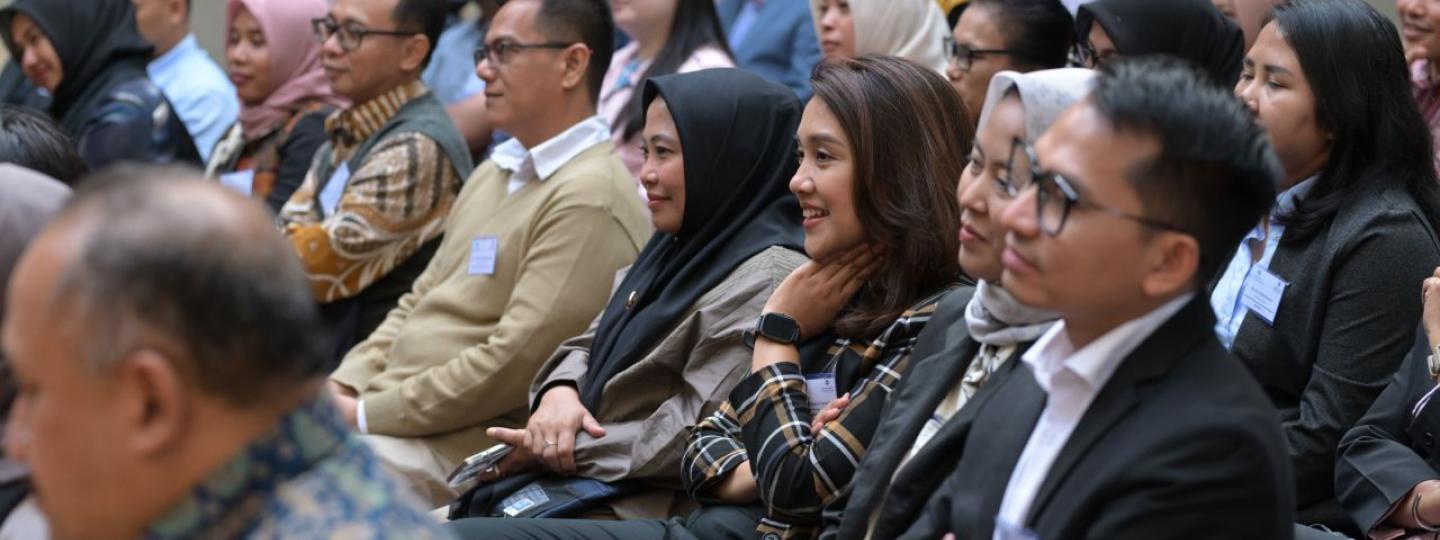
Promoting Regional Disarmament and Non-Proliferation through Education
Indonesian policymakers had the opportunity to gain a deeper understanding of Australia’s disarmament and non-proliferation perspectives and policies thanks to a new short course funded by the Australian Government.
The inaugural Australia Awards Short Course on Practitioner Exchange in Disarmament and Non-Proliferation Policy was funded by the Australian Government through the Department of Foreign Affairs and Trade (DFAT), managed by Australia Awards in Indonesia (AAI), and delivered by The University of Queensland’s (UQ) specialist International Development unit (UQID) in 2024.
Australia Awards are prestigious, transformational scholarships and short courses offered to emerging leaders from developing countries for study, research and professional development in Australia so they can return home and contribute to their nations’ development, prosperity and resilience.
UQ has a long history of hosting multiple Australia Awards Short Course cohorts in-country, and in 2024, for the first time, welcomed 19 Indonesian participants to the Australia Awards Short Course on Practitioner Exchange in Disarmament and Non-Proliferation Policy. Course participants included Indonesian government officials from the Ministry of Foreign Affairs, Ministry of Trade, the Coordinating Ministry for Maritime Affairs and Investment, the National Cyber and Cryptography Agency (BSSN), and the National Resilience Institute (Lemhannas)
Designed to serve as a bridge between Australian and Indonesian policymakers, the course aimed to deepen knowledge about respective policy frameworks related to weapons disarmament and non-proliferation, encourage exchange between early- to mid-career Indonesian and Australian policymakers on contemporary debates, strengthen links between policymakers in both countries and build networks with Australian institutions for ongoing collaboration related to disarmament and non-proliferation.
The course structure included a pre-course workshop delivered in West Java, Indonesia, an in-Australia course delivered over two weeks in Brisbane and Canberra, and a post-course workshop delivered in Jakarta, Indonesia. Course leaders included Dr Kirril Shields, Director of Education at the UQ Asia-Pacific Centre for the Responsibility to Protect, Dr Greta Nabbs-Keller, Associate Director (Defence, Space and National Security) and Professor Rain Liivoja, Deputy Dean (Research), UQ Law School.
Participants engaged in practical exercises and insightful reflection through roundtable and panel discussions to unpack their expanded understanding of Indonesian and Australian policy, the domestic implementation of international non-proliferation commitments, related regulatory frameworks and the role of benchmarking disarmament and non-proliferation measures in the region and globally.
This included discussions on missile technologies, Uncrewed Aerial Systems (UAS) hypersonics, chemical and biological weapons, other dual-use technologies, and how these technologies challenge disarmament and non-proliferation efforts.
The course reinforced the strong connections between Indonesia and Australia, and the importance of bilateral cooperation between the two nations – which in 2024 celebrated 75 years of bilateral relations.
While the course gave Indonesian agency officials insight into Australia’s approach to policies on disarmament and non-proliferation, it also provided a means of building bilateral cooperation between central and line agencies with security, trade and foreign policy responsibilities, as well as regulatory bodies, to establish mutual understanding and networks that will support long-term collaboration between the two countries.
We look forward to seeing the change these future Indonesian leaders go on to make in their organisations and welcoming their ongoing connection with UQ, Australia and Australian policymakers.
UQ International Development was recently recognised for their excellence in International Education and Training at the Queensland Export Awards. Learn more.
